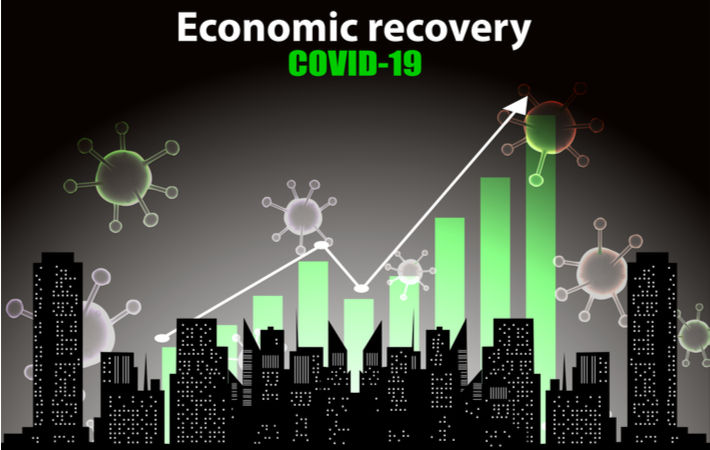Interviews
APAC must avoid K‐shaped recovery, invest in resilience: UNESCAP
05 Apr '21
3 min read

Pic: Shutterstock
The Asia-Pacific region needs large, yet attainable, investments in resilience to protect development gains amid a fragile and inequitable post-COVID-19 economic recovery, according to a recent report by the United Nations Economic and Social Commission for Asia and the Pacific (ESCAP), which says developing Asia-Pacific economies are expected to grow by 5.9 per cent in 2021 and 5 per cent in 2022, after having experienced an estimated contraction of 1 per cent in 2020.
‘The Economic and Social Survey of Asia and the Pacific 2021: Towards post-COVID-19 resilient economies’, forecasts that despite a reasonably strong rebound expected in 2021, a ‘K-shaped recovery’ is likely, with poorer countries and more vulnerable groups marginalized in the post-pandemic recovery and transition period.
The survey estimates that because of the pandemic, an additional 89 million people in the region could have been pushed back into extreme poverty in 2020 at the $1.90 per day threshold, erasing years of progress in poverty reduction.
Working-hour losses in 2020 equaled 140 million full-time jobs, while severe disruptions of economic activity and education are likely to have caused a significant setback to human capital accumulation and productivity in the region.
For a more robust and inclusive recovery, the survey calls for a more synchronised COVID-19 vaccination programme across countries and highlights opportunities to leverage regional cooperation. At the same time, it recommends that fiscal and monetary support should be sustained, as premature tightening could increase long-term scars.
Looking beyond the pandemic, the survey finds that adverse shocks, both economic and non-economic, result in permanent economic, social and environmental losses, and advises countries to take a more comprehensive approach to building resilience against future shocks.
Specifically, the survey proposes a ‘build forward better’ policy package for resilient post-COVID-19 economies that aims to ensure universal access to healthcare and social protection, close the digital divide and strengthen climate and clean energy actions. It estimates that the package would reduce the number of people living in poverty in the region by almost 180 million people and cut carbon emissions by about 30 per cent in the long run.
The survey recommends that countries in the region should respond aggressively to adverse shocks to minimise the reversal of hard-won development gains. Swift and robust policy responses are needed to safeguard sustainable development in crisis times, and risk management must become central to development planning and policymaking.
‘The Economic and Social Survey of Asia and the Pacific 2021: Towards post-COVID-19 resilient economies’, forecasts that despite a reasonably strong rebound expected in 2021, a ‘K-shaped recovery’ is likely, with poorer countries and more vulnerable groups marginalized in the post-pandemic recovery and transition period.
The survey estimates that because of the pandemic, an additional 89 million people in the region could have been pushed back into extreme poverty in 2020 at the $1.90 per day threshold, erasing years of progress in poverty reduction.
Working-hour losses in 2020 equaled 140 million full-time jobs, while severe disruptions of economic activity and education are likely to have caused a significant setback to human capital accumulation and productivity in the region.
For a more robust and inclusive recovery, the survey calls for a more synchronised COVID-19 vaccination programme across countries and highlights opportunities to leverage regional cooperation. At the same time, it recommends that fiscal and monetary support should be sustained, as premature tightening could increase long-term scars.
Looking beyond the pandemic, the survey finds that adverse shocks, both economic and non-economic, result in permanent economic, social and environmental losses, and advises countries to take a more comprehensive approach to building resilience against future shocks.
Specifically, the survey proposes a ‘build forward better’ policy package for resilient post-COVID-19 economies that aims to ensure universal access to healthcare and social protection, close the digital divide and strengthen climate and clean energy actions. It estimates that the package would reduce the number of people living in poverty in the region by almost 180 million people and cut carbon emissions by about 30 per cent in the long run.
The survey recommends that countries in the region should respond aggressively to adverse shocks to minimise the reversal of hard-won development gains. Swift and robust policy responses are needed to safeguard sustainable development in crisis times, and risk management must become central to development planning and policymaking.
Fibre2Fashion News Desk (DS)
Popular News
Leave your Comments
Editor’s Pick
































-Ltd..jpg?tr=w-120,h-60,c-at_max,cm-pad_resize,bg-ffffff)





.jpg?tr=w-120,h-60,c-at_max,cm-pad_resize,bg-ffffff)
.jpg?tr=w-120,h-60,c-at_max,cm-pad_resize,bg-ffffff)






